
Langlade: The Hidden Gem of Saint Pierre and Miquelon
Langlade, a serene part of the archipelago of Saint Pierre and Miquelon, is a hidden treasure waiting to be explored. This tranquil island offers visitors a unique blend of French culture and untouched natural beauty. The island is known for its sandy beaches, lush forests, and diverse wildlife, making it a paradise for nature enthusiasts and those looking to escape the hustle and bustle of city life. One of the main attractions of Langlade is its pristine beaches. The sandy shores stretch for miles, providing a perfect setting for a relaxing day by the sea. The clear waters are ideal for swimming and snorkeling, offering a glimpse into the vibrant marine life that thrives in the area. For those who prefer to stay on land, the beaches are perfect for sunbathing, picnicking, or simply enjoying a peaceful walk along the shoreline. Langlade's landscape is also a haven for hikers and outdoor adventurers. The island is crisscrossed with numerous trails that take you through dense forests, past serene lakes, and up gentle hills that offer stunning panoramic views of the surrounding area. Wildlife enthusiasts will be delighted by the chance to spot various bird species, as well as seals and other marine animals along the coast. The island's charm extends beyond its natural beauty. Visitors can explore the small but vibrant community that calls Langlade home. The local culture is deeply influenced by French traditions, and this is reflected in the island's cuisine, festivals, and daily life. Don't miss the opportunity to sample fresh seafood dishes, which are a staple of the local diet, or to participate in one of the island's traditional celebrations. Langlade offers a perfect blend of relaxation and adventure, making it an ideal destination for all types of travelers. Whether you're looking to unwind on a quiet beach, embark on an outdoor adventure, or immerse yourself in the local culture, Langlade has something to offer.
Local tips in Langlade
- Pack layers: The weather can change quickly, so it's best to be prepared for both warm and cool conditions.
- Bring cash: Some local establishments may not accept credit cards, so having cash on hand is a good idea.
- Try the seafood: Langlade is known for its fresh and delicious seafood, so make sure to sample local dishes.
- Explore on foot: The best way to discover the island's natural beauty is by walking the numerous trails.
- Visit during the summer: The best time to visit Langlade is during the summer months when the weather is most pleasant.
Langlade: The Hidden Gem of Saint Pierre and Miquelon
Langlade, a serene part of the archipelago of Saint Pierre and Miquelon, is a hidden treasure waiting to be explored. This tranquil island offers visitors a unique blend of French culture and untouched natural beauty. The island is known for its sandy beaches, lush forests, and diverse wildlife, making it a paradise for nature enthusiasts and those looking to escape the hustle and bustle of city life. One of the main attractions of Langlade is its pristine beaches. The sandy shores stretch for miles, providing a perfect setting for a relaxing day by the sea. The clear waters are ideal for swimming and snorkeling, offering a glimpse into the vibrant marine life that thrives in the area. For those who prefer to stay on land, the beaches are perfect for sunbathing, picnicking, or simply enjoying a peaceful walk along the shoreline. Langlade's landscape is also a haven for hikers and outdoor adventurers. The island is crisscrossed with numerous trails that take you through dense forests, past serene lakes, and up gentle hills that offer stunning panoramic views of the surrounding area. Wildlife enthusiasts will be delighted by the chance to spot various bird species, as well as seals and other marine animals along the coast. The island's charm extends beyond its natural beauty. Visitors can explore the small but vibrant community that calls Langlade home. The local culture is deeply influenced by French traditions, and this is reflected in the island's cuisine, festivals, and daily life. Don't miss the opportunity to sample fresh seafood dishes, which are a staple of the local diet, or to participate in one of the island's traditional celebrations. Langlade offers a perfect blend of relaxation and adventure, making it an ideal destination for all types of travelers. Whether you're looking to unwind on a quiet beach, embark on an outdoor adventure, or immerse yourself in the local culture, Langlade has something to offer.
When is the best time to go to Langlade?
Iconic landmarks you can’t miss
Le Feu de Braise
Discover the authentic flavors of Saint-Pierre at Le Feu de Braise, where exceptional pizza meets a warm, inviting atmosphere.
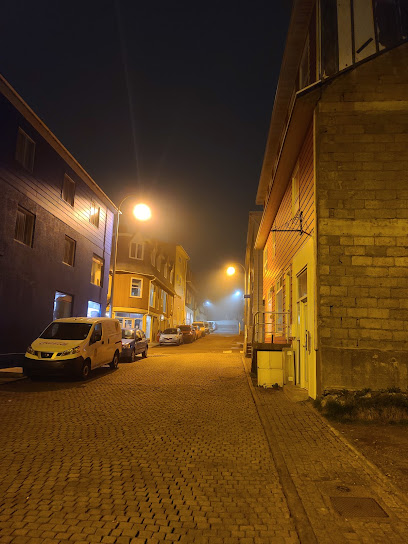
Les P'tits Graviers
Experience the authentic flavors of St. Pierre & Miquelon at Les P'tits Graviers, where local ingredients meet culinary creativity in a cozy atmosphere.
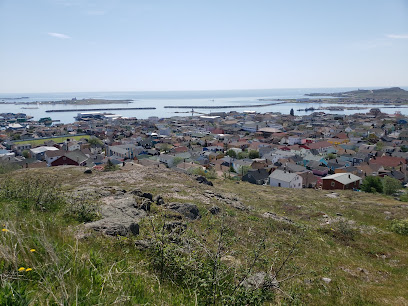
Hotel Robert
Discover comfort and charm at Hotel Robert in Saint-Pierre, the perfect base for exploring the enchanting landscapes of St. Pierre & Miquelon.

Provincial Seamen's Museum
Discover the fascinating maritime history at the Provincial Seamen's Museum in Grand Bank, where the stories of seafarers come to life through engaging exhibits.
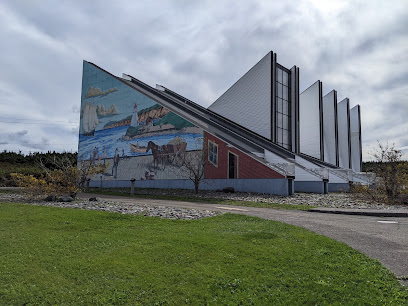
Island Inn
Experience the serenity of Miquelon at Island Inn, your cozy lodge retreat with breathtaking views and warm hospitality.
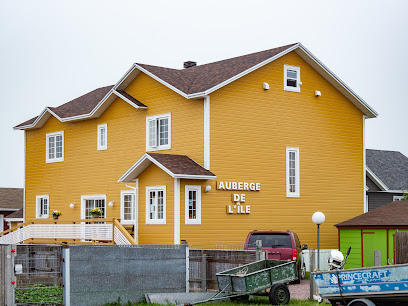
Le Select
Discover the tastes of Saint-Pierre at Le Select, a beloved restaurant offering local flavors in a cozy atmosphere.
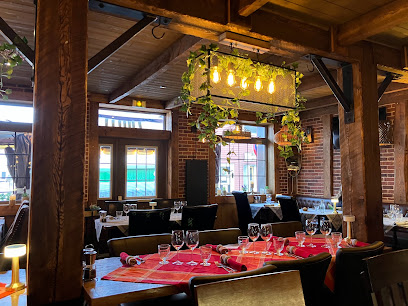
Auberge Saint-Pierre
Experience the charm of Auberge Saint-Pierre, a cozy inn in the heart of Saint-Pierre, offering comfort and local culture for every traveler.
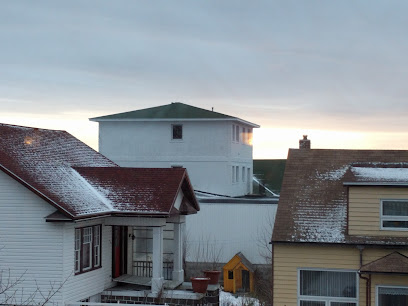
Miquelon Island
Experience the unique blend of French and North American culture on Miquelon Island, a hidden gem in the North Atlantic with stunning landscapes and vibrant communities.
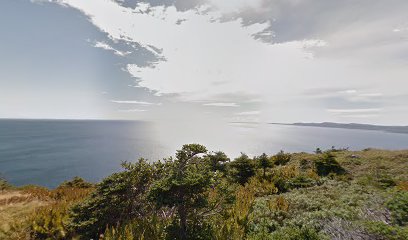
Complexe Hôtelier Les Terrasses du Port
Discover the luxury and tranquility of Complexe Hôtelier Les Terrasses du Port, a premier hotel in the heart of Saint-Pierre & Miquelon.
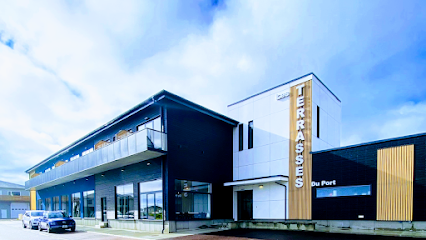
Heritage Museum
Explore the rich culture and history of St. Pierre & Miquelon at the Heritage Museum, a captivating tourist attraction showcasing the islands' unique heritage.
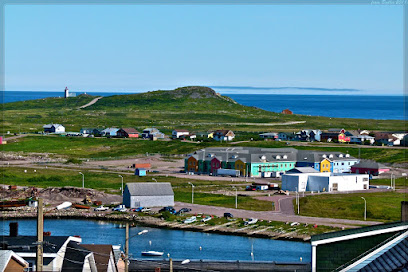
Café de la gare
Discover the flavors of Saint-Pierre at Café de la Gare, where local cuisine meets a cozy atmosphere in the heart of the town.
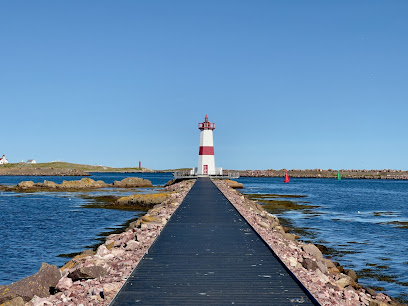
Ile Miquelon
Discover the charm of Ile Miquelon: a hidden French gem in the North Atlantic, where stunning landscapes meet rich cultural heritage.

Fortune Head Geology Centre
Explore geological wonders at the Fortune Head Geology Centre, a must-visit museum in Newfoundland showcasing the Earth's rich history and geological marvels.
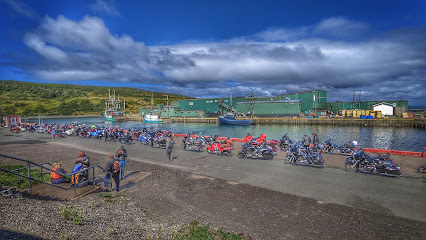
Auberge Quatre Temps
Experience comfort and local charm at Auberge Quatre Temps, your ideal hotel in Saint-Pierre, St. Pierre & Miquelon.
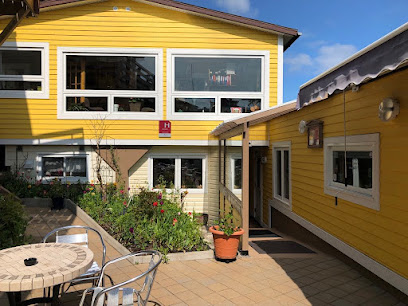
Nuits Saint-Pierre, Hôtel Unique
Embrace the charm and comfort of Nuits Saint-Pierre, a unique hotel experience in Saint-Pierre & Miquelon, where local culture meets hospitality.
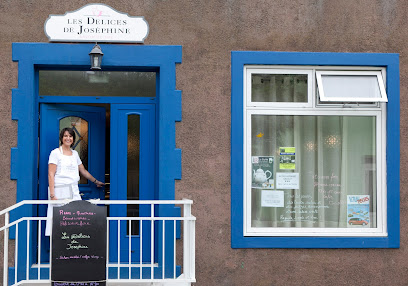
Essential places to dine
Le Feu de Braise
Discover delectable pizzas at Le Feu de Braise in Saint-Pierre – where local flavors meet culinary passion.
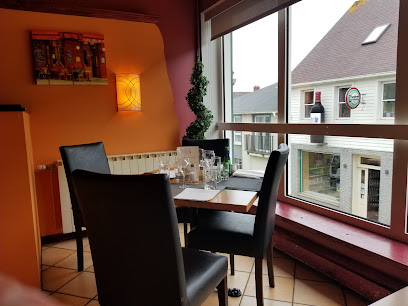
Les P'tits Graviers
Experience the essence of St. Pierre with local flavors at Les P'tits Graviers - where every meal is a celebration of culinary artistry.
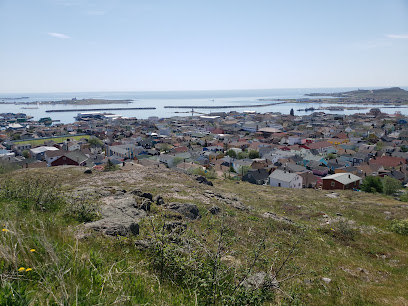
Le Select
Experience authentic St. Pierre cuisine at Le Select, where local flavors meet exceptional hospitality in a charming setting.
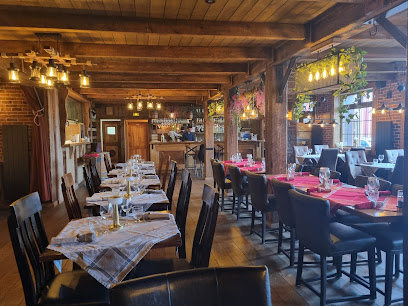
Café de la gare
Discover the flavors of St. Pierre & Miquelon at Café de la Gare - where culinary tradition meets cozy charm.
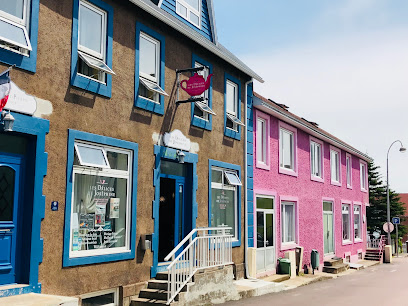
Snack Bar-to-Choice
Experience authentic local cuisine at Snack Bar-to-Choice in Miquelon-Langlade – where every dish tells a story.
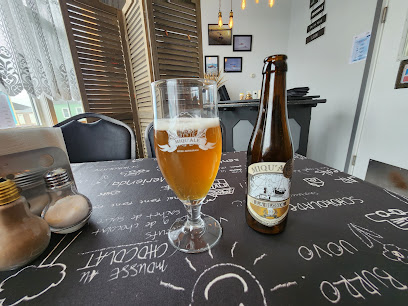
2 Lapins
Experience culinary excellence at 2 Lapins in Saint-Pierre – where local flavors meet cozy dining ambiance.
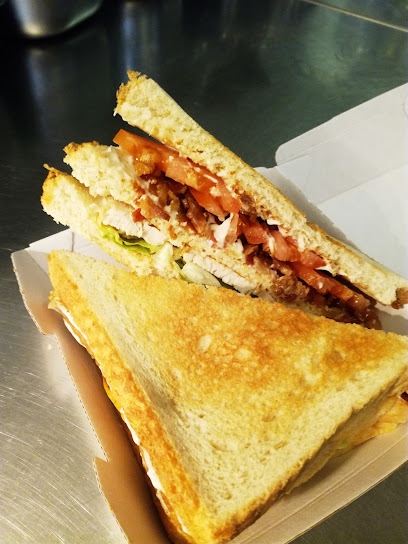
Entre Nous Restaurant
Experience authentic French cuisine and vibrant nightlife at Entre Nous Restaurant in Miquelon-Langlade.
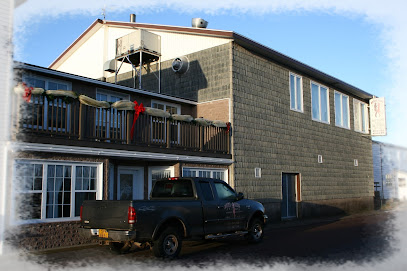
Pizzéria Chez Alain
Discover authentic Italian pizza at Pizzéria Chez Alain, where every bite brings a taste of Italy to Saint-Pierre's charming streets.
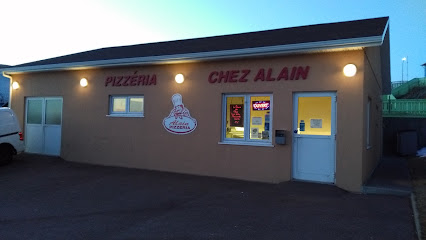
Le Bar à Quai
Discover the flavors of Saint-Pierre at Le Bar à Quai - where fresh seafood meets local tradition in a charming harbor setting.
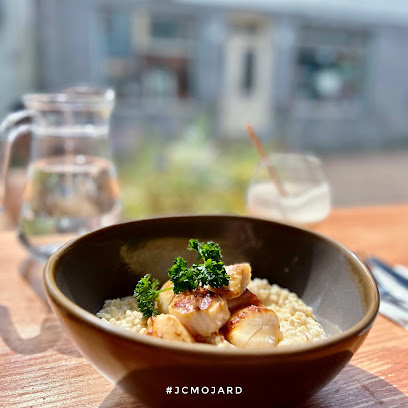
The Jezequel House
Experience authentic local cuisine at The Jezequel House on Ile aux Marins in St. Pierre & Miquelon, where every dish tells a story.
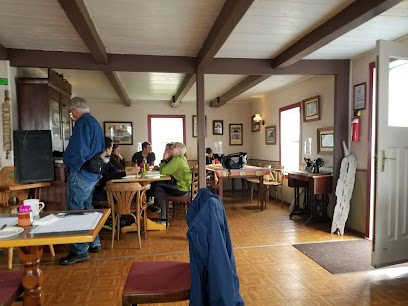
Artisanal brewery at the bottom of the Anse
Explore artisanal brews at Brasserie Artisanale de l'Anse - where tradition meets flavor in St. Pierre & Miquelon.
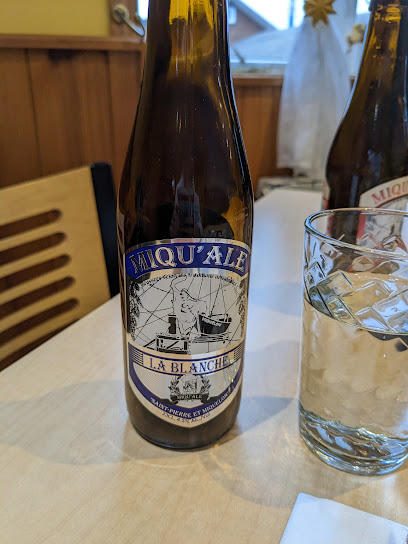
L'Ilot
Experience the authentic taste of Saint-Pierre at L'Ilot, where local ingredients meet exceptional culinary craftsmanship.
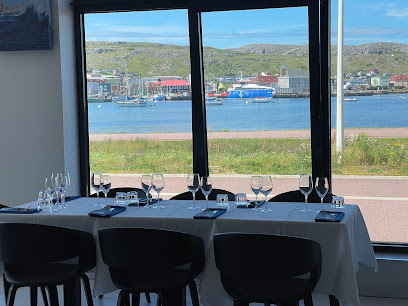
Le Buddy
Experience authentic St. Pierre cuisine at Le Buddy, where local flavors meet a cozy atmosphere in Saint-Pierre.
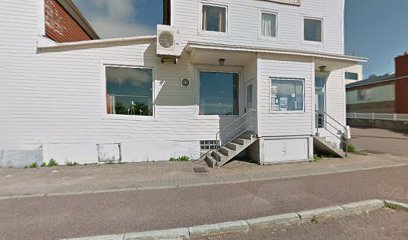
Le marhaba
Experience authentic St. Pierre & Miquelon flavors at Le Marhaba - a must-visit catering and takeout restaurant in Saint-Pierre.
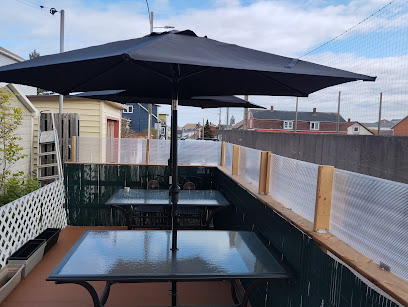
Restaurant Ile de France
Experience authentic French cuisine at Restaurant Ile de France in Saint-Pierre - a culinary delight blending local flavors with classic dishes.
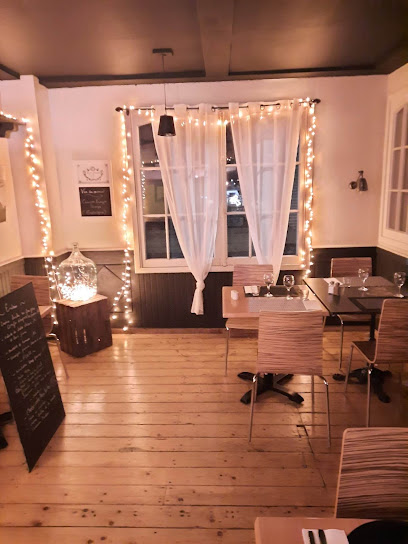
Markets, malls and hidden boutiques
Chez Clochet
Discover the essence of local culture at Chez Clochet, Saint-Pierre's charming general store filled with unique products and local delicacies.
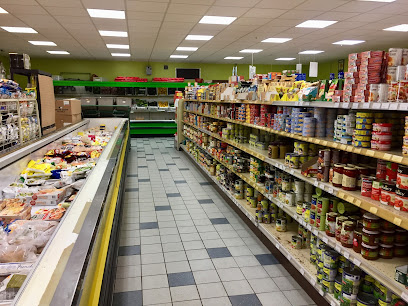
Chez L'tournel
Discover local flavors at Chez L'tournel, Saint-Pierre's premier grocery store offering a taste of St. Pierre & Miquelon's culinary culture.
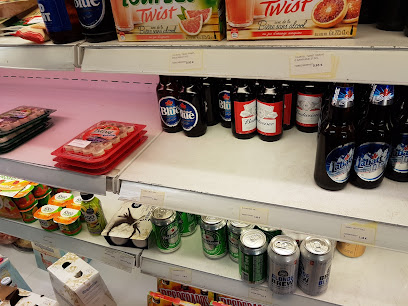
Ré-Créations - Parfumerie & Cadeaux
Explore Ré-Créations in Saint-Pierre for exquisite perfumes and unique gifts that encapsulate the essence of your travels.
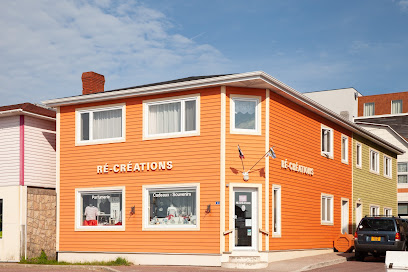
Victoire&Léon
Discover the stylish treasures of Victoire&Léon, your go-to clothing store in Saint-Pierre for men, women, and children's fashion.
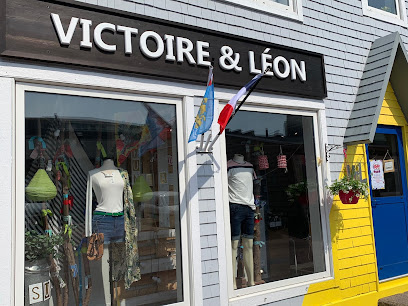
Épicerie fine 4 épice
Discover the flavors of Saint-Pierre at Épicerie fine 4 épice, a gourmet gift shop offering local delicacies and unique souvenirs.
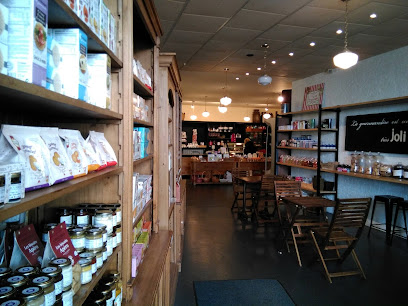
Maison Hélène
Discover unique clothing and local craftsmanship at Maison Hélène, a must-visit boutique in Saint-Pierre, St. Pierre & Miquelon.
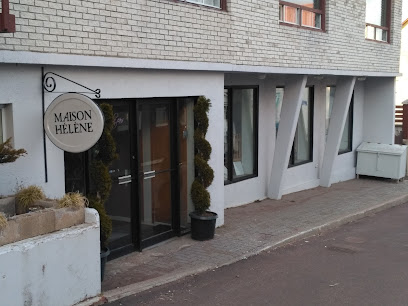
Lemaine and Son
Discover unique local products and warm hospitality at Lemaine and Son, the heart of Saint-Pierre's community shopping experience.
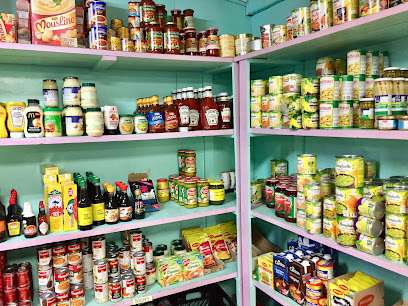
Click
Explore Click Gift Shop in Saint-Pierre for unique souvenirs, stylish clothing, and local treasures that capture the spirit of St. Pierre & Miquelon.
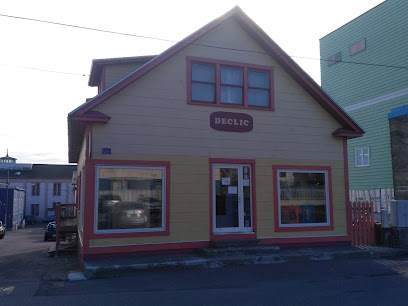
Free Cartier
Explore Free Cartier, a unique gift shop in Saint-Pierre, offering authentic local treasures and delightful souvenirs to cherish your travel memories.
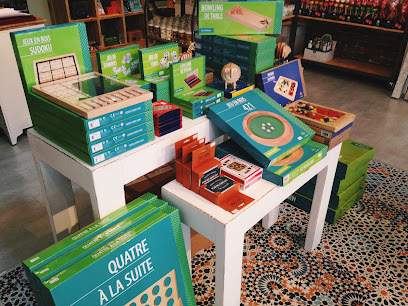
The Archipelago Stationary Shop
Explore The Archipelago Stationary Shop in Saint-Pierre for unique home goods and authentic local souvenirs, capturing the spirit of the archipelago.

Chez Martine
Discover the artistry of Saint-Pierre at Chez Martine, your go-to needlework shop for unique crafts and local artisan creations.

Clin d’œil
Discover unique fashion treasures at Clin d’œil, a premier clothing store in Saint-Pierre, St. Pierre & Miquelon, perfect for stylish souvenirs.
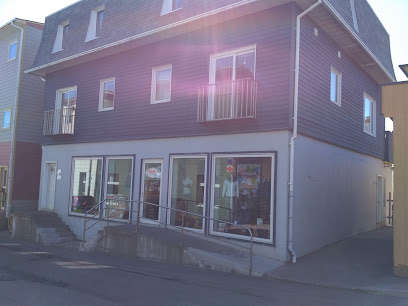
Hélène Girardin
Explore Hélène Girardin in Saint-Pierre for authentic local crafts and unique souvenirs that celebrate the spirit of St. Pierre & Miquelon.

Le P’tit Dépanneur
Experience local flavors and convenience at Le P’tit Dépanneur, the heart of Miquelon-Langlade’s shopping scene.
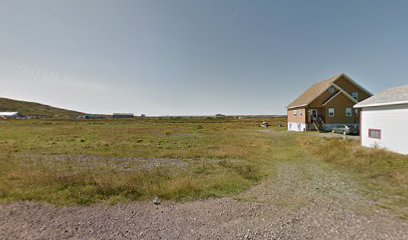
Warehouse Landry SA
Discover the unique local products and charming atmosphere of Warehouse Landry SA in Saint-Pierre, a true reflection of island culture.
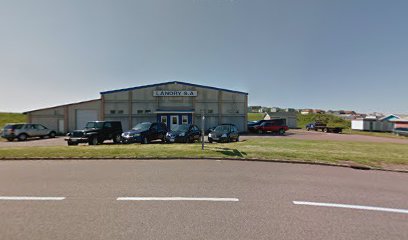
Essential bars & hidden hideouts
Le Feu de Braise
Experience the best of Saint-Pierre's culinary scene at Le Feu de Braise, where delicious pizza meets warm hospitality.
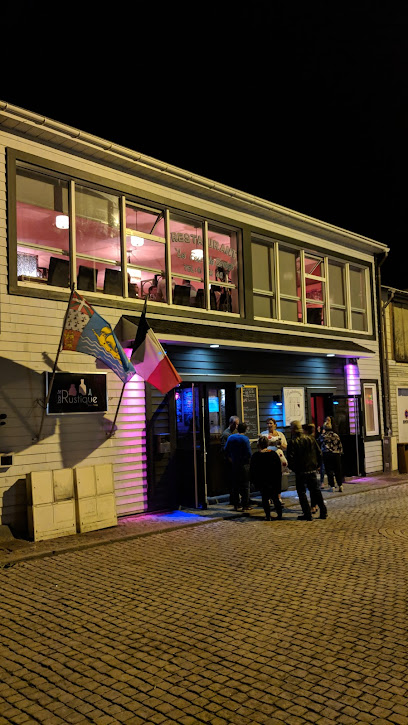
Les P'tits Graviers
Discover the flavors of Saint-Pierre at Les P'tits Graviers, where fresh ingredients meet local culinary traditions in a warm, inviting atmosphere.
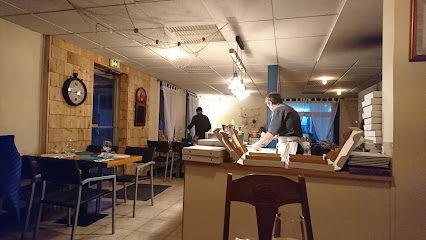
Bar Le Rustique
Discover the vibrant atmosphere and local flavors at Bar Le Rustique in Saint-Pierre, the perfect spot to unwind and enjoy a drink.
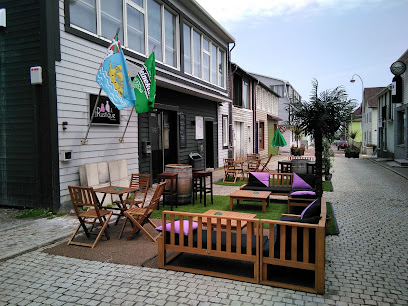
Le Select
Experience the flavors of Saint-Pierre at Le Select, a charming restaurant known for its fresh local seafood and inviting atmosphere, perfect for every traveler.
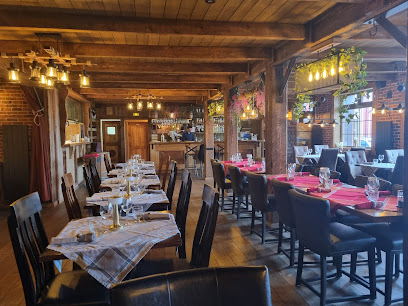
Snack Bar-to-Choice
Experience local flavors at Snack Bar-to-Choice in Miquelon-Langlade, where culinary traditions meet fresh ingredients in a cozy atmosphere.
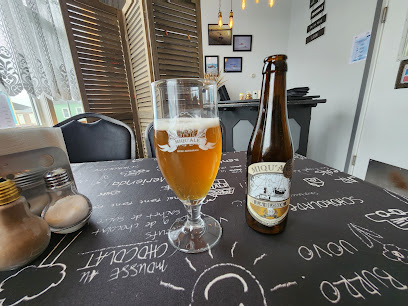
Café de la gare
Experience the delightful flavors of Saint-Pierre at Café de la Gare, a charming restaurant offering a blend of local and international cuisine.
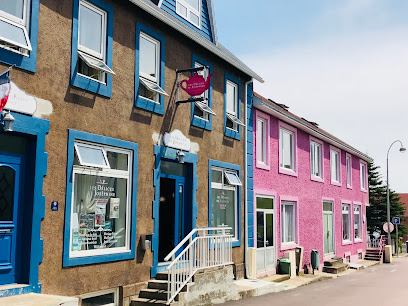
2 Lapins
Experience the culinary charm of 2 Lapins in Saint-Pierre, where local flavors meet a cozy atmosphere for a delightful dining experience.
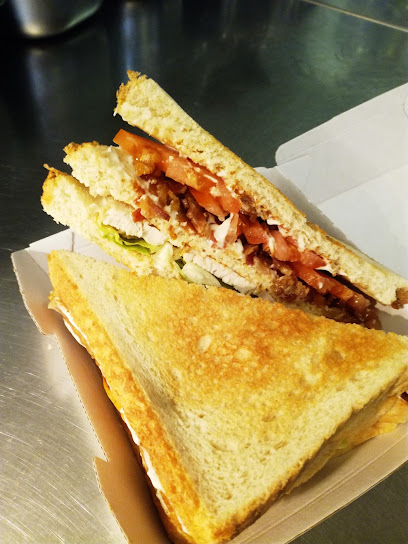
Entre Nous Restaurant
Discover the exquisite flavors of French cuisine and vibrant nightlife at Entre Nous Restaurant in Miquelon.
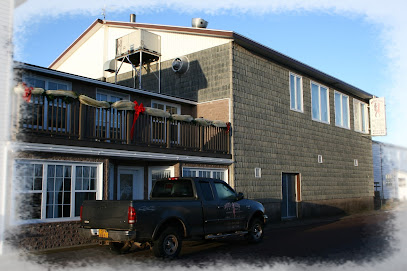
Chez Txetxo
Discover the vibrant atmosphere and local flavors at Chez Txetxo, a must-visit bar in Saint-Pierre, perfect for unwinding and socializing.
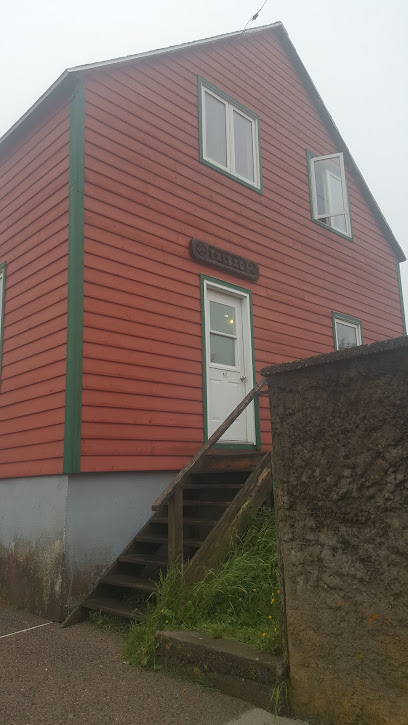
Le Bar à Quai
Discover the flavors of Saint-Pierre at Le Bar à Quai, a restaurant that celebrates local cuisine in a cozy and inviting atmosphere.
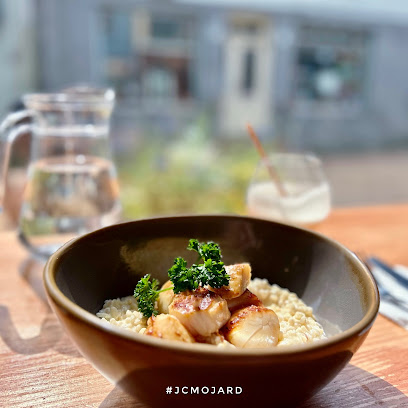
Le Baratin
Experience the heart of St. Pierre & Miquelon at Le Baratin, a cozy bar offering local charm and delicious beverages in a warm atmosphere.

Chez Janot
Discover the vibrant atmosphere of Chez Janot, a top bar in St. Pierre & Miquelon, perfect for enjoying local drinks and socializing.
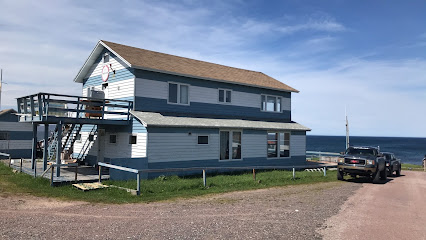
L'Essentiel
Experience the heart of St. Pierre & Miquelon at L'Essentiel, a cozy café that serves delightful local flavors in a charming atmosphere.
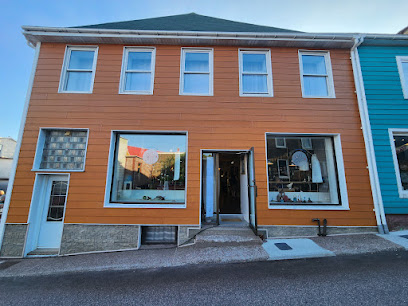
Roc Café
Discover Roc Café, the cozy haven in Saint-Pierre offering delightful coffee, homemade pastries, and a vibrant atmosphere perfect for relaxation.
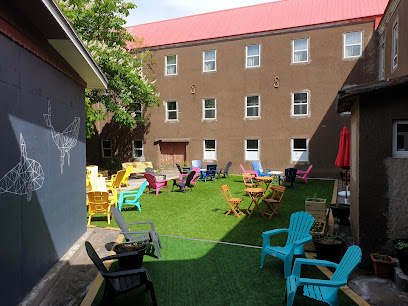
The Jezequel House
Experience the rich culinary heritage of St. Pierre & Miquelon at The Jezequel House, where local flavors meet inviting ambiance.
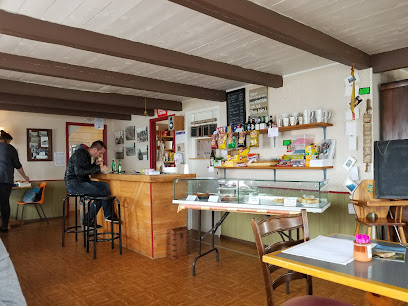
Local Phrases
-
- HelloBonjour
[bon-zhoor] - GoodbyeAu revoir
[oh ruh-vwahr] - YesOui
[wee] - NoNon
[nohn] - Please/You're welcomeS'il vous plaît / De rien
[seel voo pleh / deh ryen] - Thank youMerci
[mehr-see] - Excuse me/SorryExcusez-moi / Désolé
[ehk-sew-zay-mwah / day-zoh-lay] - How are you?Comment ça va?
[koh-mahn sah vah] - Fine. And you?Bien. Et vous?
[byen. ay voo] - Do you speak English?Parlez-vous anglais?
[par-lay voo ahn-glay] - I don't understandJe ne comprends pas
[zhuh nuh kohm-prahn pah]
- HelloBonjour
-
- I'd like to see the menu, pleaseJe voudrais voir le menu, s'il vous plaît
[zhuh voo-dray vwahr luh men-oo, seel voo pleh] - I don't eat meatJe ne mange pas de viande
[zhuh nuh mahnj pah duh vee-ahnd] - Cheers!Santé!
[sahn-tay] - I would like to pay, pleaseJe voudrais payer, s'il vous plaît
[zhuh voo-dray pay-yay, seel voo pleh]
- I'd like to see the menu, pleaseJe voudrais voir le menu, s'il vous plaît
-
- Help!Au secours!
[oh seh-koor] - Go away!Allez-vous en!
[ah-lay vooz ahn] - Call the Police!Appelez la Police!
[ah-peh-lay lah Poh-lees] - Call a doctor!Appelez un médecin!
[ah-peh-lay uh mayd-sahn] - I'm lostJe suis perdu(e)
[zhuh swee pair-doo(eh)] - I'm illJe suis malade
[zhuh swee mah-lahd]
- Help!Au secours!
-
- I'd like to buy...Je voudrais acheter...
[zhuh voo-dray zah-shay...] - I'm just lookingJe regarde juste
[zhuh ruh-gahrd juhst] - How much is it?Combien ça coûte?
[kohm-byen sah koot] - That's too expensiveC'est trop cher
[say troh shair] - Can you lower the price?Pouvez-vous baisser le prix?
[poo-veh voo beh-say luh pree]
- I'd like to buy...Je voudrais acheter...
-
- What time is it?Quelle heure est-il?
[kehl uhr ay teel] - It's one o'clockIl est une heure
[eel ay oon uhr] - Half past (10)Dix heures et demie
[dees uhr ay duh-mee] - MorningMatin
[mah-tahn] - AfternoonAprès-midi
[ah-pray mee-dee] - EveningSoir
[swahr] - YesterdayHier
[ee-ehr] - TodayAujourd'hui
[oh-zhoor-dwee] - TomorrowDemain
[duh-mahn] - 1Un
[uhn] - 2Deux
[duh] - 3Trois
[twah] - 4Quatre
[kah-truh] - 5Cinq
[sank] - 6Six
[sees] - 7Sept
[sept] - 8Huit
[weet] - 9Neuf
[nuhf] - 10Dix
[dees]
- What time is it?Quelle heure est-il?
-
- Where's a/the...?Où est...?
[oo ay] - What's the address?Quelle est l'adresse?
[kehl ay la-dress] - Can you show me (on the map)?Pouvez-vous me montrer (sur la carte)?
[poo-veh voo muh mohn-tray (soor lah kart)] - When's the next (bus)?Quand est le prochain (bus)?
[kahnd ay luh proh-shahn (boos)] - A ticket (to ....)Un billet (pour ...)
[uhn bee-yay (poor)]
- Where's a/the...?Où est...?
History of Langlade
-
Long before European explorers set foot on Langlade, the island was frequented by Indigenous peoples, primarily the Mi'kmaq. These early inhabitants used the island as a seasonal hunting and fishing ground. Evidence of their presence includes various artifacts such as tools and pottery fragments found scattered around the island.
-
Langlade, along with the rest of Saint Pierre and Miquelon, was claimed by France in the early 17th century. The French settlers utilized the island's rich fishing grounds, establishing seasonal settlements. The Treaty of Utrecht in 1713 briefly transferred control to the British, but the islands were returned to France in 1763 after the Treaty of Paris.
-
During the 18th and 19th centuries, Langlade's economy flourished due to the abundant cod fishing opportunities. The island became a hub for fishermen from France and the Basque Country. Fishing stations and salting facilities were established to process the catches before shipping them to Europe. This period marked a significant population increase and economic development.
-
The Prohibition era in the United States from 1920 to 1933 had a substantial impact on Langlade. The island became a key transit point for smuggling alcohol into the United States. Bootleggers used the island as a staging ground for their operations, bringing economic benefits to the local population through the influx of goods and money.
-
During World War II, Saint Pierre and Miquelon, including Langlade, became strategically important due to their location in the North Atlantic. The islands were under Vichy French control until December 1941, when Free French forces took over. The islands served as a base for monitoring German U-boat activities in the Atlantic.
-
After World War II, Langlade underwent significant modernization. Infrastructure improvements included the construction of roads and the establishment of better communication networks. The island's economy diversified slightly, though fishing remained a primary industry. Efforts were also made to boost tourism, highlighting Langlade's natural beauty and historical significance.
-
Langlade's culture is a unique blend of French and North American influences. Traditional festivals, such as Bastille Day, are celebrated with great enthusiasm. The island's cuisine is heavily influenced by French culinary traditions, with a focus on seafood. Local music and dance also reflect the island's rich cultural heritage, with events often featuring folk songs and dances passed down through generations.
Langlade Essentials
-
Langlade is part of the Saint Pierre and Miquelon archipelago, located south of the Canadian island of Newfoundland. The most common way to reach Langlade is by taking a ferry from Saint-Pierre. The ferry service operates regularly during the summer months. Alternatively, there are flights available from Halifax, Nova Scotia, and St. John's, Newfoundland, to Saint-Pierre Airport (FSP). From Saint-Pierre, visitors can take a ferry to Langlade.
-
Langlade does not have a public transportation system, so visitors typically rely on taxis, rental cars, or bicycles to get around. The island is relatively small, making it easy to explore by bike or on foot. For trips to nearby islands or more remote areas, consider renting a car or arranging for a taxi service. Ferries are available for travel between the islands in the archipelago.
-
The official currency of Saint Pierre and Miquelon is the Euro (EUR). Credit cards are widely accepted in hotels, restaurants, and shops, but it is advisable to carry some cash for smaller establishments and remote areas. ATMs are available in Saint-Pierre, but it is recommended to withdraw sufficient cash before heading to Langlade.
-
Langlade is generally a very safe destination for tourists. Crime rates are low, and the local community is friendly and welcoming. However, it is always prudent to take standard precautions such as keeping an eye on personal belongings and avoiding solitary walks at night in unfamiliar areas. There are no specific high-crime areas targeting tourists.
-
In case of emergency, dial 17 for police, 18 for fire services, and 15 for medical emergencies. The local authorities and medical facilities are well-equipped to handle emergencies. It is advisable to have travel insurance that covers medical emergencies. For minor health issues, there are pharmacies where you can purchase over-the-counter medications.
-
Fashion: Do dress in layers, as the weather can be unpredictable. Avoid overly casual or revealing clothing when visiting religious sites. Religion: Do respect local customs and traditions. When visiting churches, dress modestly and remove hats. Public Transport: Do be courteous and follow local etiquette. Public transport is limited, so private arrangements are often necessary. Greetings: Do greet people with a friendly 'Bonjour'. A handshake is a common greeting. Eating & Drinking: Do try local seafood and traditional dishes. Don't refuse food or drink offerings, as it is considered impolite.
-
To experience Langlade like a local, visit the small family-owned eateries and try freshly caught seafood. Engage with locals, who are often eager to share stories about the island's history and culture. Explore the scenic trails and beaches, and don't miss the opportunity to visit the unique landscape of the Grand Barachois lagoon, home to a large colony of seals. Participating in local festivals and events can also provide a deeper understanding of the community's way of life.
Trending Landmark in Langlade
-
Le Feu de Braise
-
Les P'tits Graviers
-
Hotel Robert
-
Provincial Seamen's Museum
-
Island Inn
-
Le Select
-
Auberge Saint-Pierre
-
Miquelon Island
-
Complexe Hôtelier Les Terrasses du Port
-
Heritage Museum
-
Café de la gare
-
Ile Miquelon
-
Fortune Head Geology Centre
-
Auberge Quatre Temps
-
Nuits Saint-Pierre, Hôtel Unique
Nearby Cities to Langlade
-
Things To Do in Miquelon
-
Things To Do in Saint-Pierre Ferry Terminal
-
Things To Do in Saint-Pierre Airport
-
Things To Do in Charlottetown
-
Things To Do in Bar Harbor
-
Things To Do in Acadia National Park
-
Things To Do in Bangor
-
Things To Do in Camden
-
Things To Do in Rockland
-
Things To Do in Waterville
-
Things To Do in Augusta
-
Things To Do in Brunswick
-
Things To Do in Lewiston
-
Things To Do in Quebec City
-
Things To Do in South Portland










